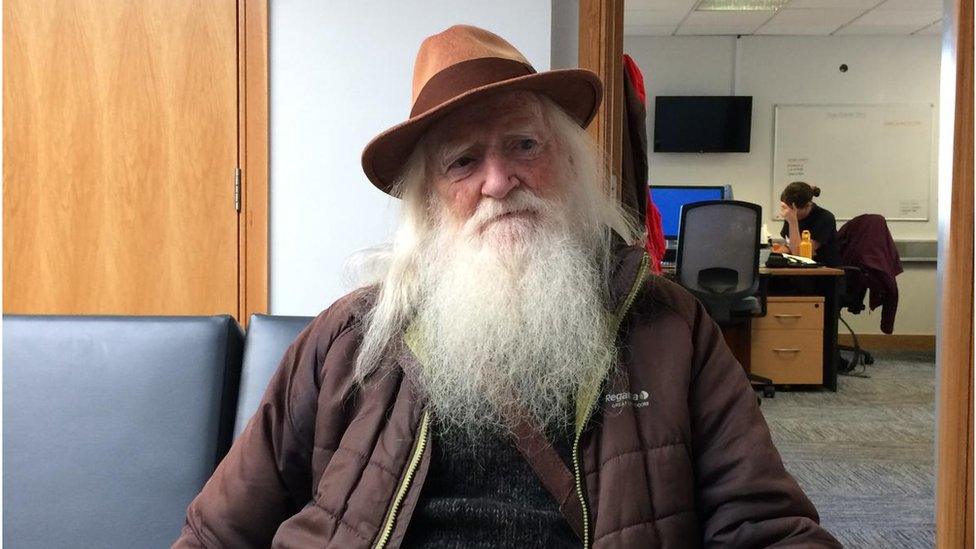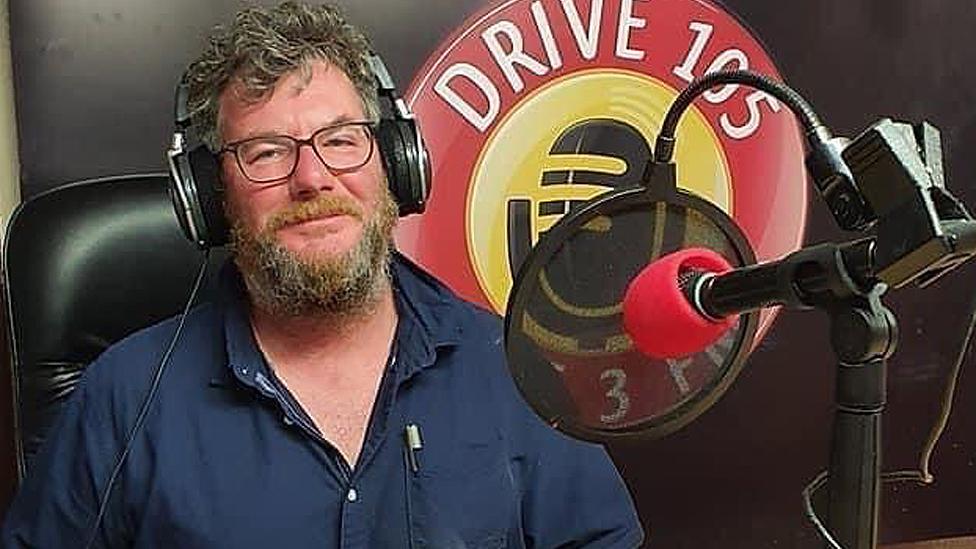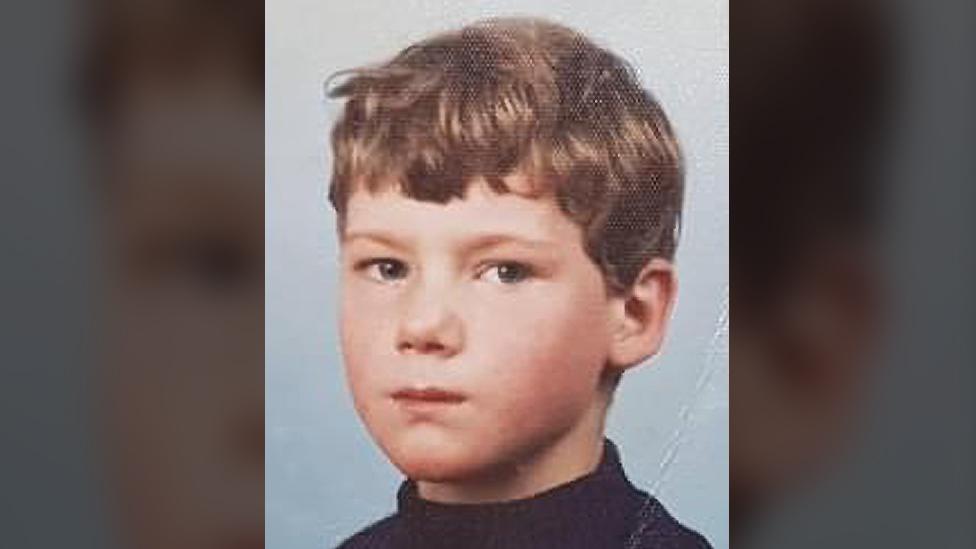Sean McLaughlin: How my stammer caused chaos in my life
- Published

Musician Sean "Derry" McLaughlin says having a stammer has affected his entire life
Imagine being slapped across the face because you cannot recite a poem properly.
Picture being mocked because you trip over your words; or thrown out of college while training to become a priest because you do not speak like the other students.
Welcome to the world of Sean McLaughlin, 80, who has been living with a stammer for as long as he can remember.
The well-known Irish traditional musician from Londonderry is among the tens of millions of people worldwide who have this speech defect.
Many famous names have been affected too, including Winston Churchill, US President Joe Biden, Elvis Presley, Marilyn Munroe, Nicole Kidman and Ed Sheeran.
For Sean, it all began in his childhood and through his life, he has paid a heavy price for being different.
"I've always had a stammer," said the retired social worker.
"I went to St Columb's College. I had quite a few run-ins with the teachers.
"The English teacher, in particular, wanted me to recite poems, which I found very difficult because you had to get up in front of the class and do this.
"He slapped me across the face in front of everybody in the class. I couldn't recite the poem the way he wanted."
Sean was 14 at the time.
A stumbling block
In the 66 years since, having a stammer has cost him dearly.
After school, Sean wanted to become a priest so he attended a seminary for four years before his vocation came to an abrupt end.
"They came to me one day and said, 'Mr McLaughlin, you won't be coming back next year. Your speech hasn't improved enough and we'll have to let you go'," he explained.
He returned to his native Derry, where he tried and failed for two years to find a job.
The stumbling block? Again, his stammer.
"I applied for every job that was going. I went to one of the biggest employers in the area and they told me I was a fire risk because I couldn't say the word 'fire'," he said.
Many people grow out of stammering or learn techniques to help them deal with it, but, for Sean, there has been no end to his disability.
Those with a bad stammer are now protected by anti-discrimination laws, but he believes attitudes in the general public are slow to change.
"When I stammer in public, in particular if I'm talking to an individual, they find it very difficult to know what to do," he explained.
"They're at a loss. They're embarrassed. They're suspicious. They want to walk away and that happens even today.
"What they shouldn't do is finish the sentence for me."

Mark Burns has largely managed to overcome his stammer and now presents live radio shows
People like 54-year-old Mark Burns, who since overcoming his childhood stammer now likes to take part in debates, perform poetry in public and presents a live radio show.
As a child of the Troubles, growing up in Derry, he wonders if his stammer may have come from childhood trauma.
"Where we grew up was a very violent area at the bottom of Creggan. I would have seen an awful lot of stuff, heard explosions, shooting, would have seen people shot," he described.
"I just presumed myself it may have been connected with that."
He also had some negative experiences at school.
"There was one teacher, in particular, I had a pretty awful experience with, where he would have mocked me in front of my classmates, which was incredibly embarrassing, made me very very angry," he said.

Mark Burns says he was mocked as a child because of his stammer
"I ended up getting slapped every single day because of a stand-off that I had with this particular teacher over this issue.
Mark said he was 13 at the time.
He developed breathing techniques to help him overcome his stammer - but it has not been without its challenges.
"It's always at the back of your mind," he admitted.
If you have been affected by the issues raised in this story, help and support is available through the BBC Action Line.
Related topics
- Published11 January 2011
- Published22 October 2015

- Published12 August 2023

- Published18 April 2021
